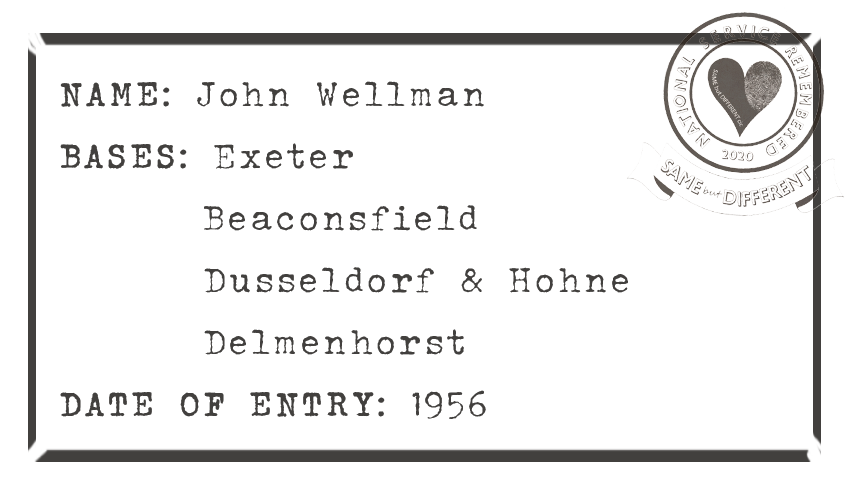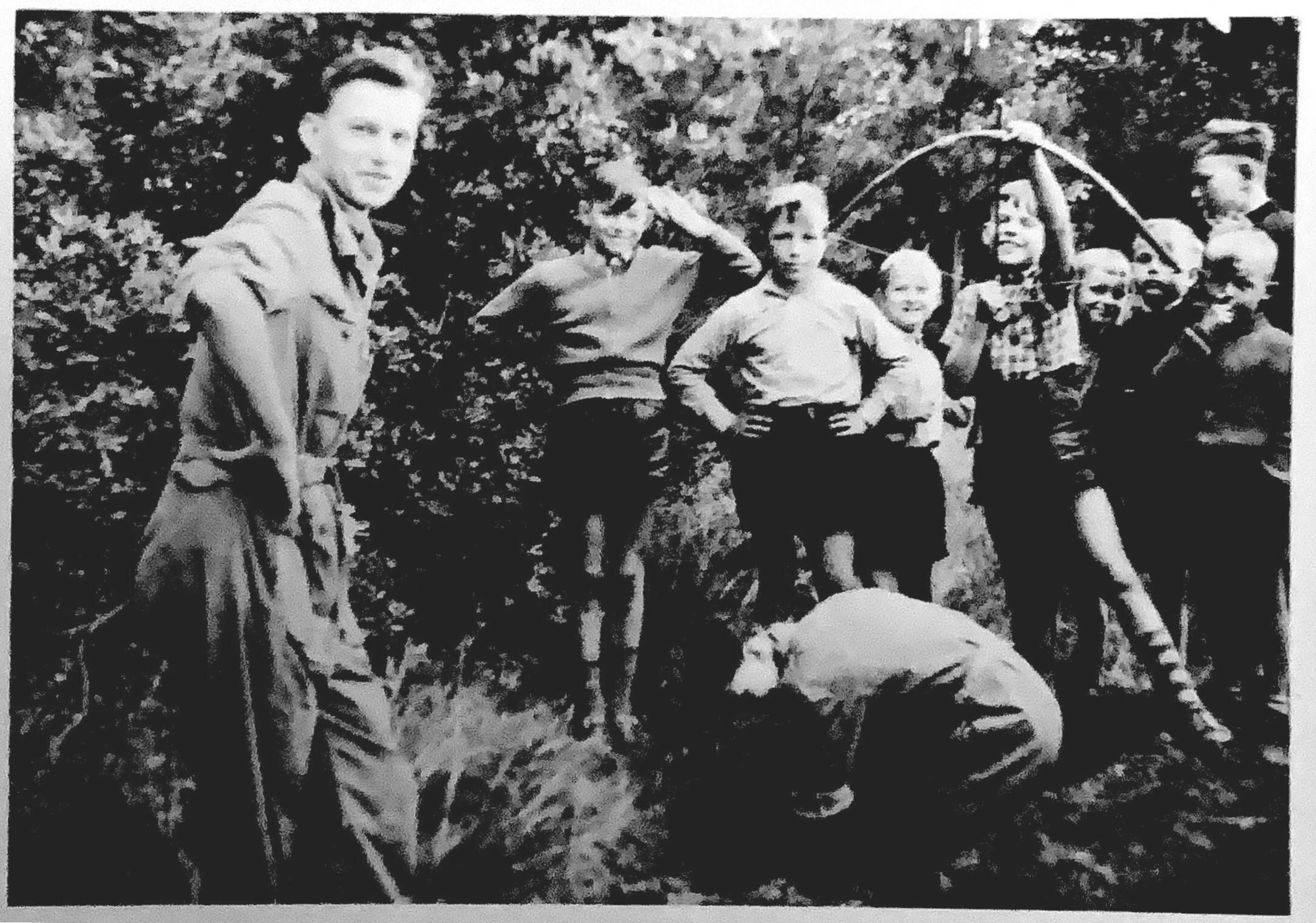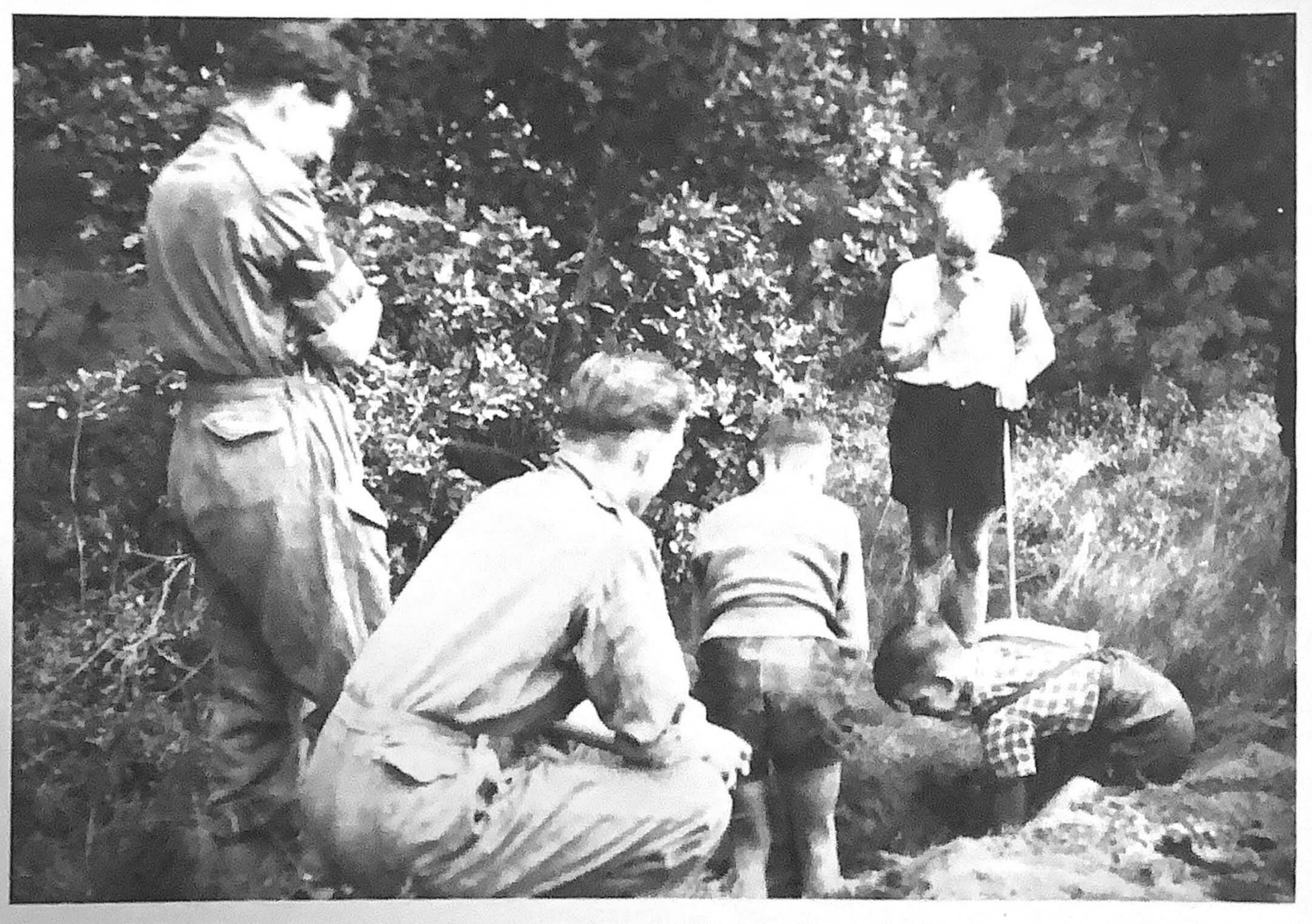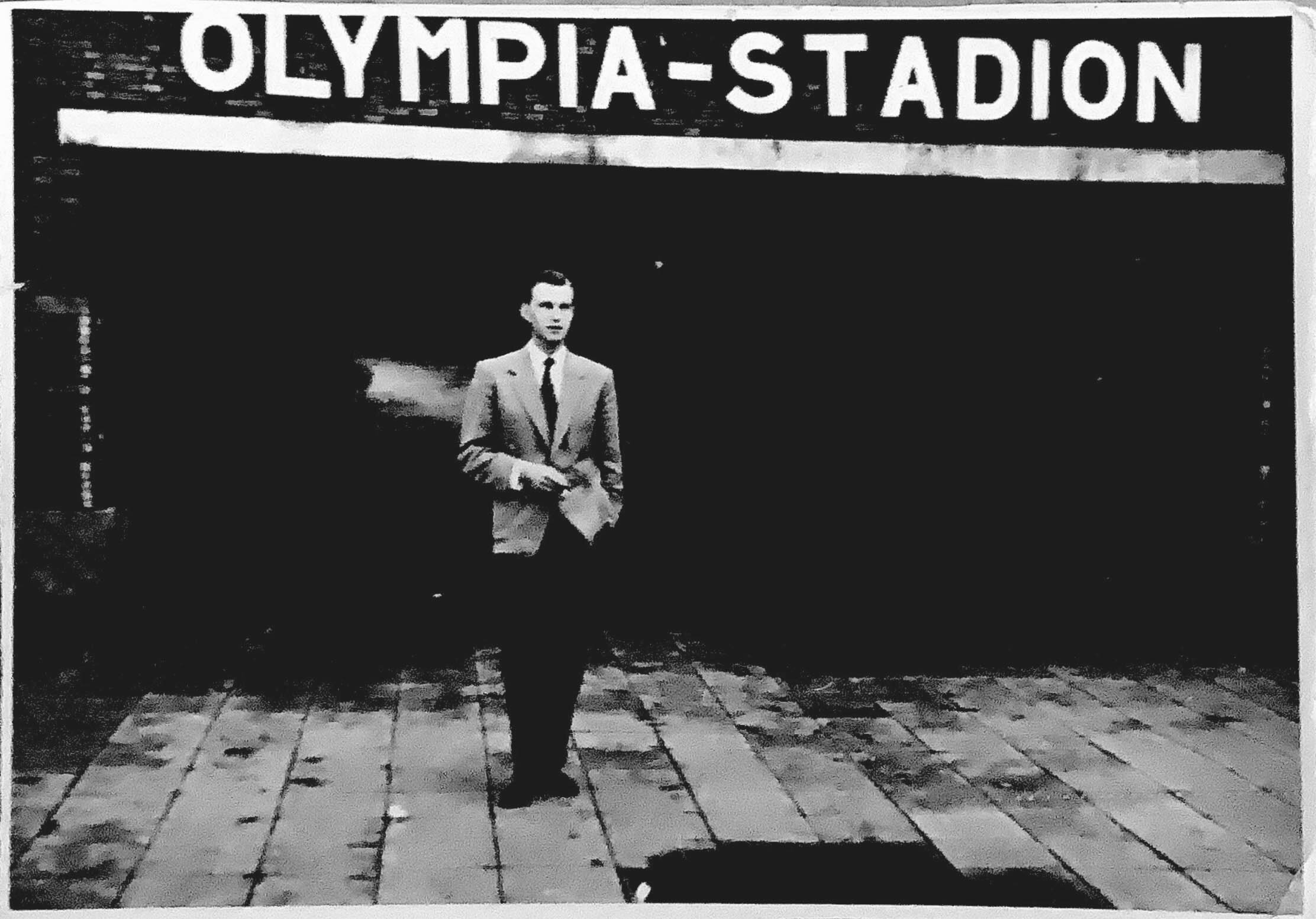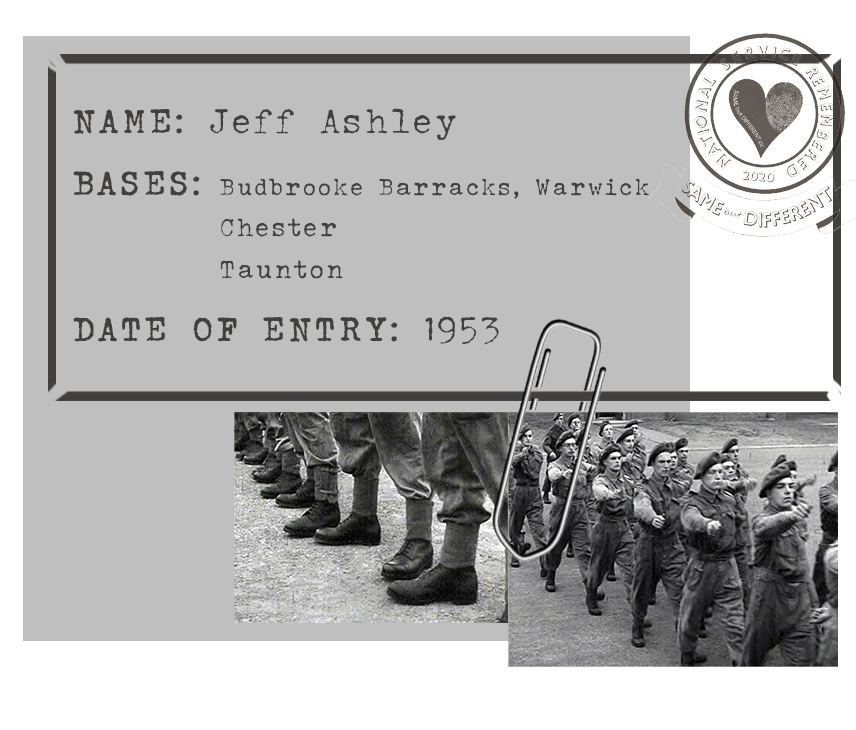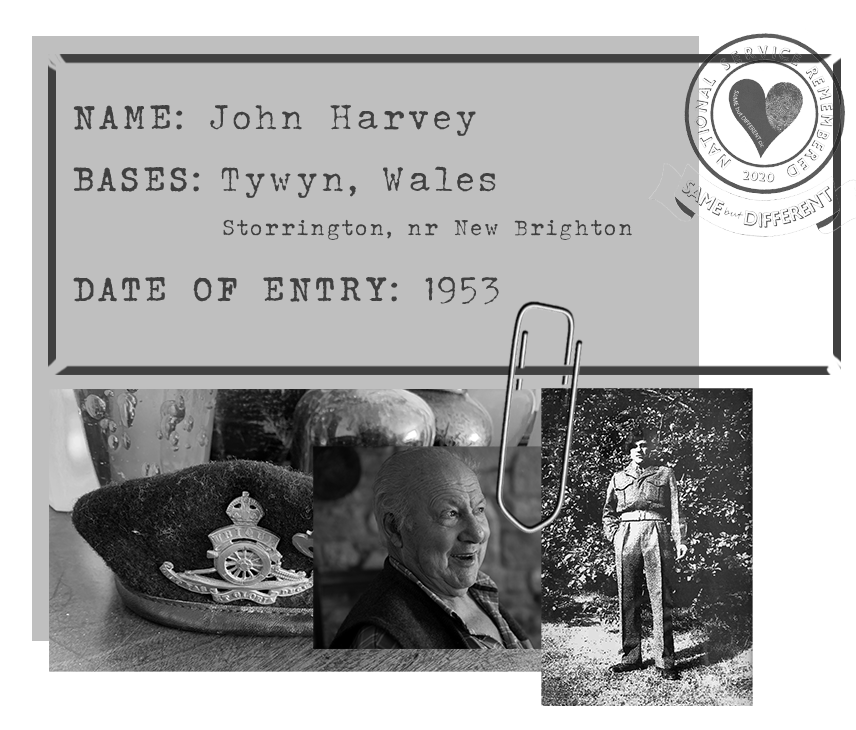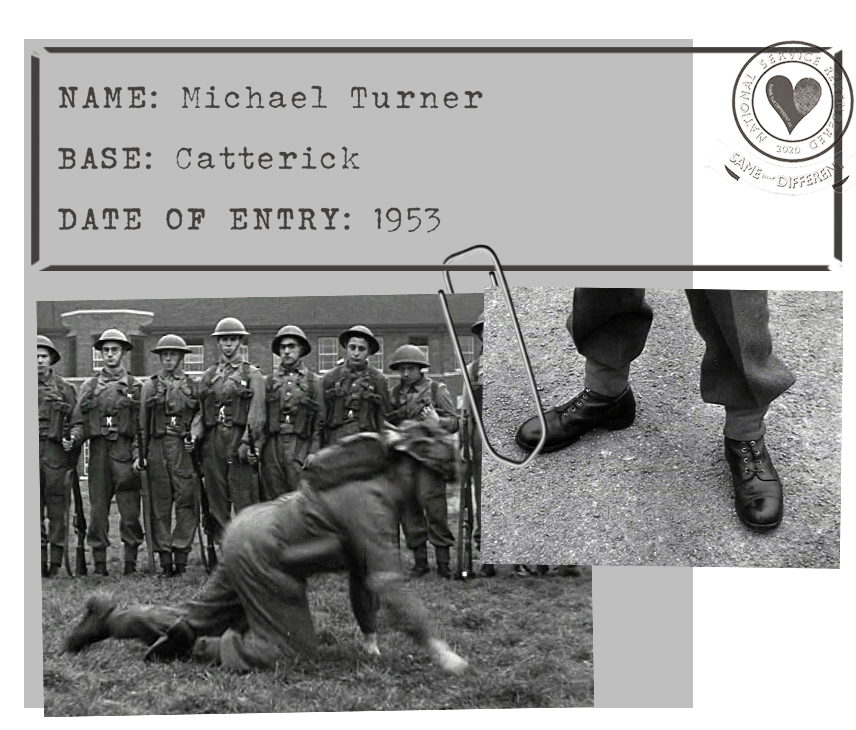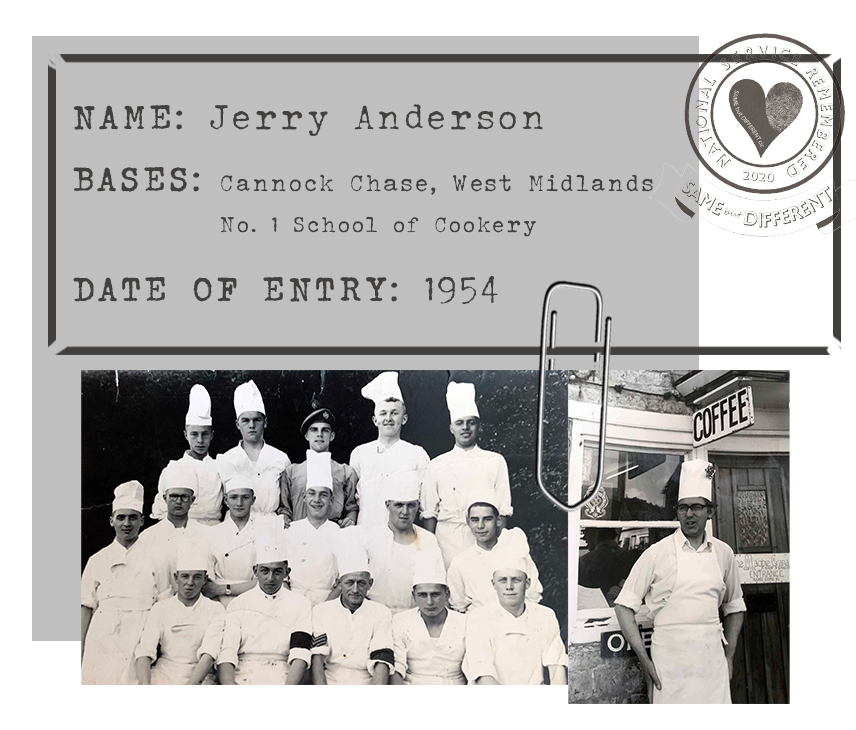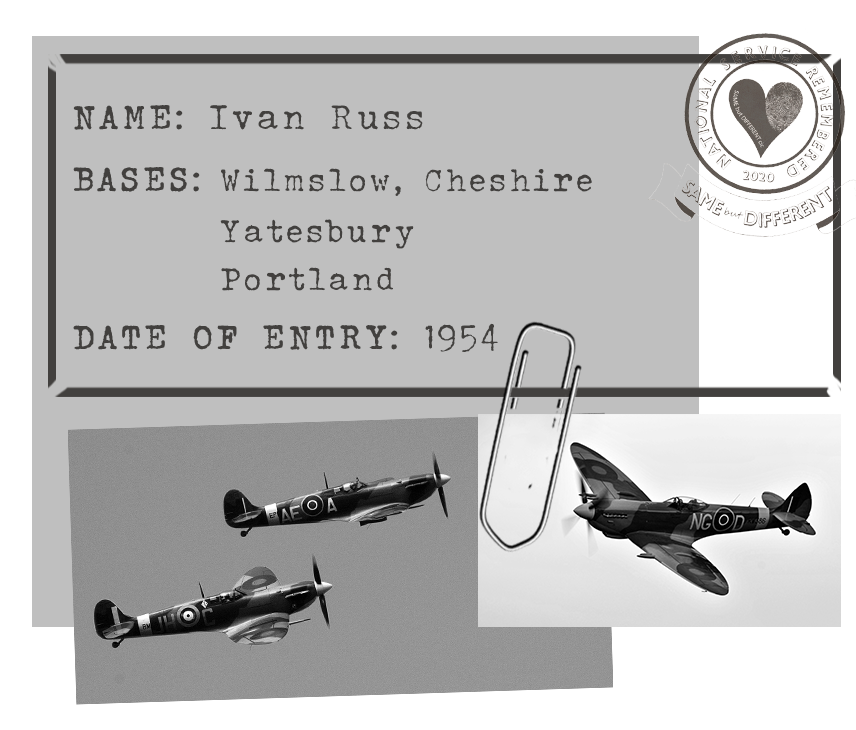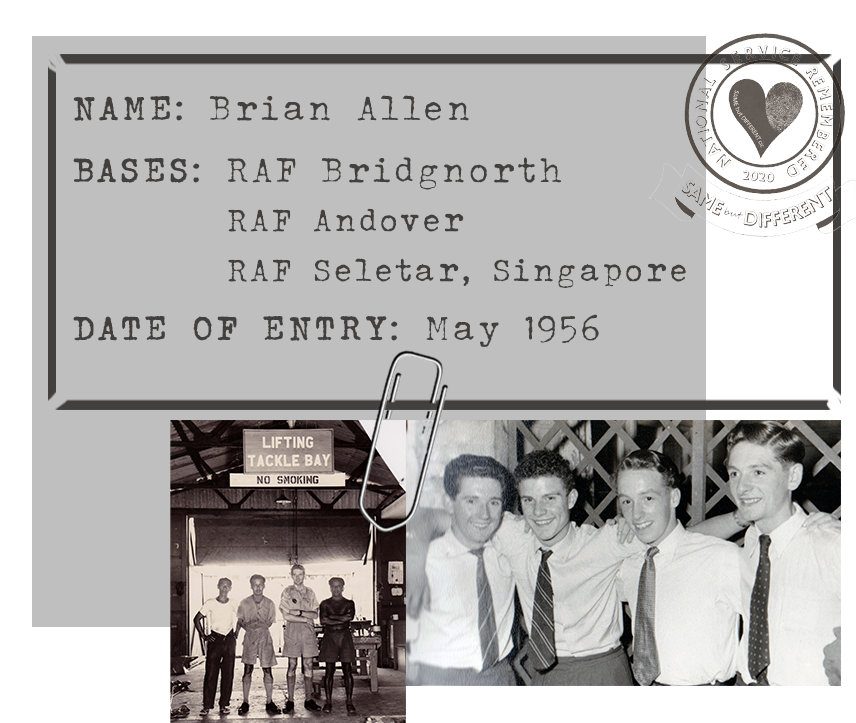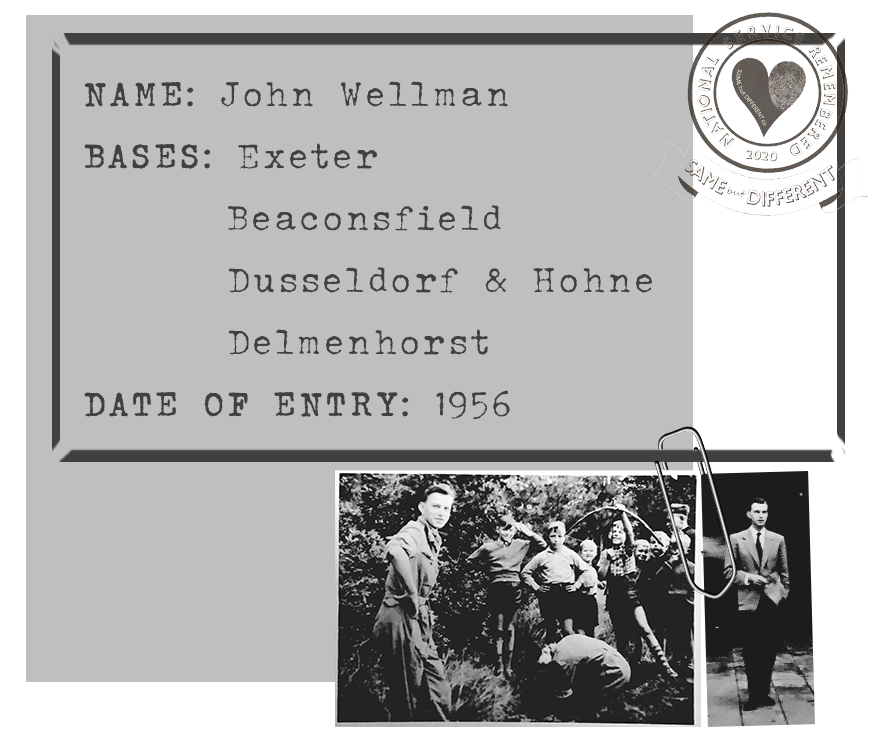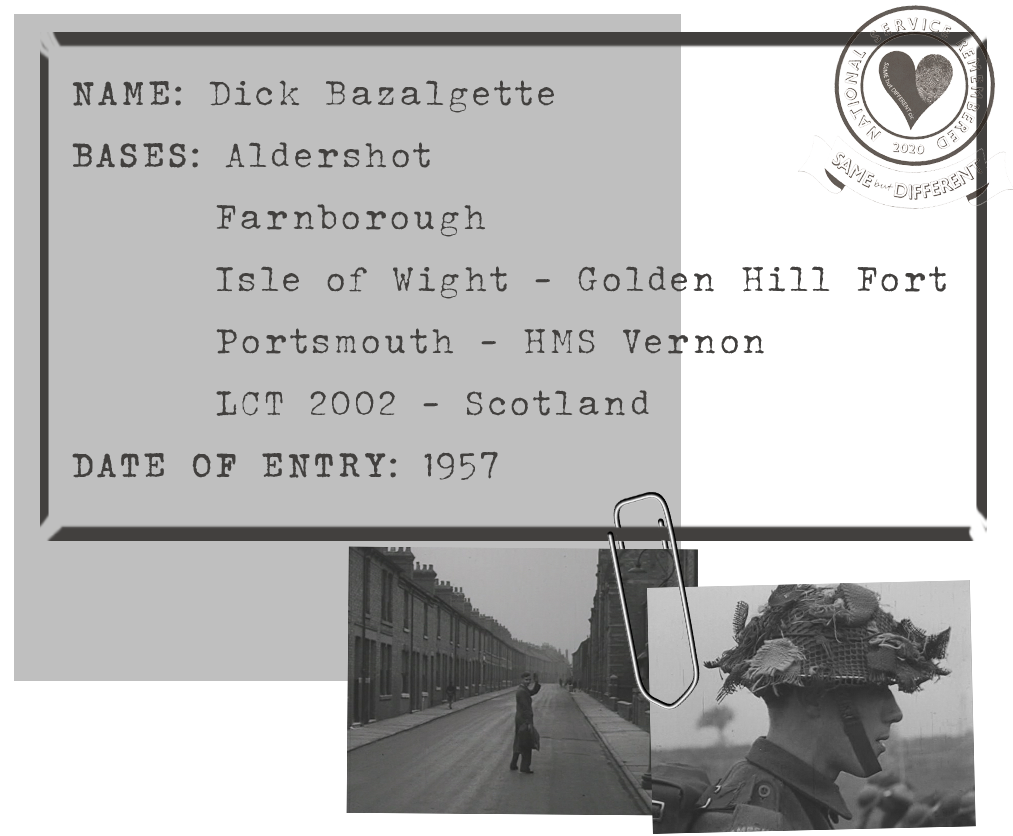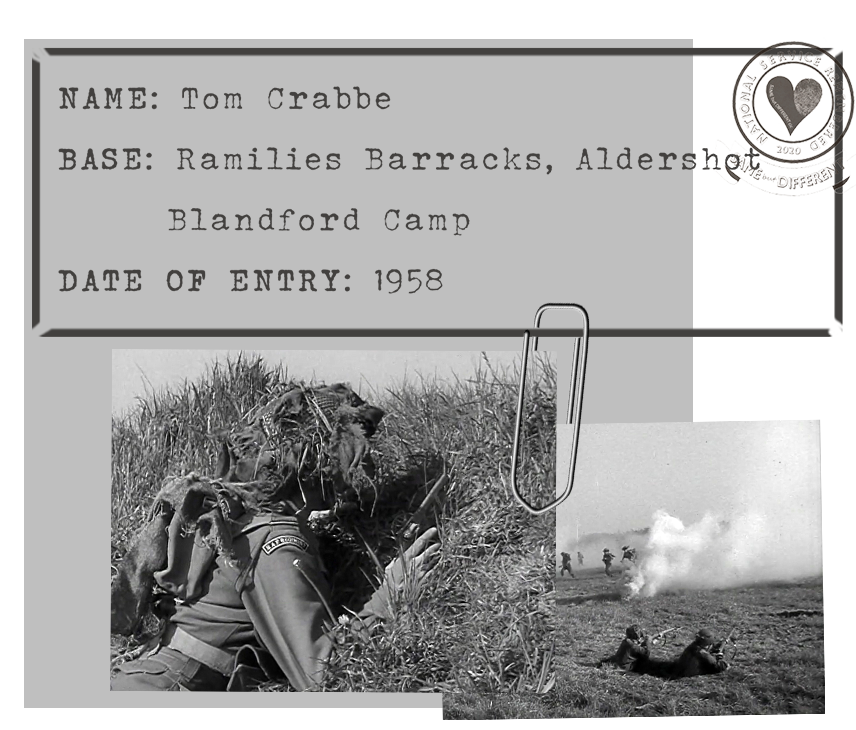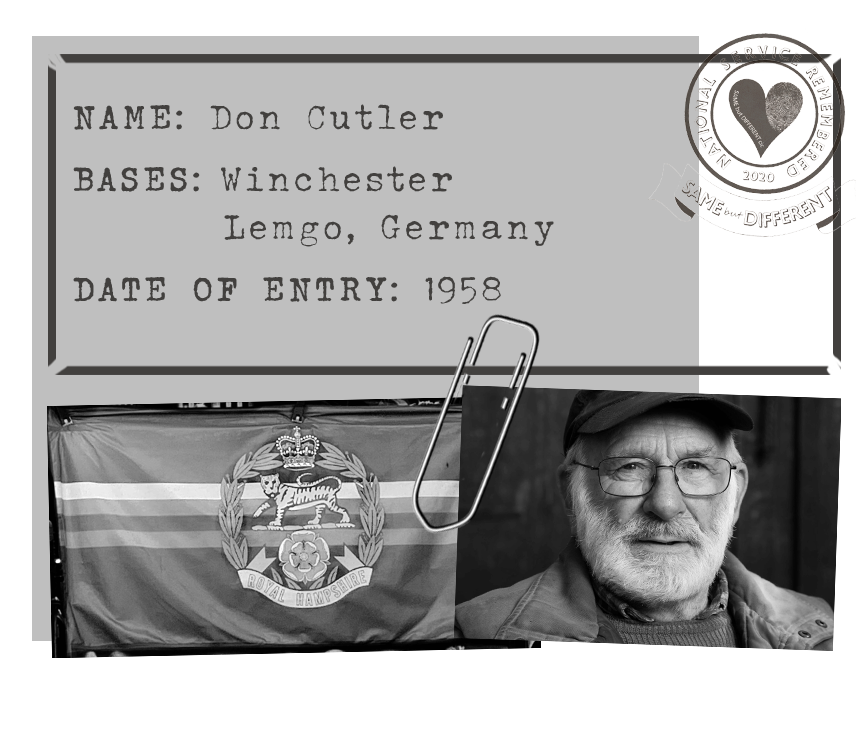I grew up in Poole and attended Poole Grammar School
I took a summer job as a bus conductor before being called up at the age of 19. I went to join the Devon regiment in Exeter, as part of the Wessex brigade to do my basic training. I was a bit disappointed at going into the infantry and not to the Education Corps. I went on the train to Exeter and realised fairly quickly that there were other people among our intake who had also applied for the Education Corps.
The first thing we were told was that we had to look like soldiers if we wanted to go home for Christmas. We all applied ourselves very quickly, polishing boots, looking smart and ensuring our beds were beautifully made, even to the point of sleeping on the floor so it would pass next morning. Strangely, we were issued with our own plugs for the sinks and they mysteriously disappeared if we left them there. I realised that I wasn’t going to get out until Christmas but then I spotted a lorry going out once a week and discovered that was a snooker team going to play in the Exeter evening league. I very quickly started playing snooker and got myself into the team. I ended up going out quite regularly with the rest of the people looking at me rather jealously.
There was one other person from Poole, that I knew of by reputation, a bit of a villain who had been in court for throwing somebody out of a car and it didn't take him to long to threaten another chap. The corporal in charge thought, as I lived in Poole, I might be able to stop him doing anything stupid. They created a new unit and I became the senior private in charge. One evening, he was dying for a drink and was going to go over the wall, so I decided that I'd best go with him. After a couple of beers we broke back in. He felt hungry and was going to raid the guard house so I went along making sure he didn't do anything too stupid. Next morning, I realised that we hadn't gone unobserved but as I was trying to stop him doing anything serious, I got away with it. I did make it home for Christmas.
“The first thing we were told was that we had to look like soldiers if we wanted to go home for Christmas.”
It turned out that I was a bit frightened of shooting and used to jerk in anticipation. They made the point that I was likely to wipe out several of the sheep on Dartmoor and kept me clear of them. The IRA were active at that time, breaking into barracks, stealing armoury and ammunition. I was on guard when we were called out on a very serious alert, to activities in the TA unit, so we crawled up the road with one bullet in our rifles. When we arrived to burst in, we realised it was a rearranged game in the snooker league.
We had to go on an exercise in the on the moors and were going to be attacked by our enemy, the Marines from Plymouth. We had to march about 5-10 miles, dig trenches and guard against the edge of a woodland. I got into my trench and realised I was standing in water. I pointed out to my corporal that if I could put my trench a little higher up there would be no water. He thought I was trying to be clever and made me stand in it all night. The Marines were busy and didn't come. The next morning, marching back, I started to get blisters on my feet. The Corporal said to put oil on them - olive oil would have been a great help, but rifle oil wasn't and I started to get problems with my feet. I was excused boots by the MO for a week but by the end of the week I was in serious trouble and had the start of gangrene, so I was taken by ambulance to Honiton hospital and spent 10 days there. When I was released, I was too late to take part in the passing out parade. I stood beside my family, watching it in my shoes. The MO at Exeter who was a Major had been severely dealt with and dropped to Captain as a result. She should have picked it up much earlier and I could have lost a leg. I then moved onto to Beaconsfield to the army school of education.
The training was good.
You were made to stand at the front of a class, and the captain in charge would pass notes around to try and disrupt you, saying things like ‘pass wind loudly now’, just to see how you dealt with it; it was good training for my career. I also remember, they gave you a subject and you had to talk about it for 5 minutes. My subject was beans so I delivered my speech on the first presidents of the USA. They all listened and then the Captain said, “that was very good, but I can't see how that was about beans”. I replied “they were all ‘has-beens’”. He said, “I don't think you'll have any problems teaching”.
Another time my humour nearly got me in trouble: I was very poor at cross country running. In fact, I was presented with an award at school for having come last on four consecutive years in the cross country run. We had to run around a golf course so I and a couple of chaps decided that if we hid in one of the bunkers on the green until they came round again, we could just join in for the last mile. As soon as we saw a few coming in, we came in with them. What we didn't realise was that a lot of the runners had gone wrong somewhere and we were in fact in the first half a dozen. We were promptly told we would have to go into special training for the cross country team. Fortunately, there was one person who was a National Cross Country runner and he came in about 30th so they realised that something was desperately wrong and quickly cancelled that arrangement, much to our relief.
“I pointed out to my corporal that if I could put my trench a little higher up there would be no water. He thought I was trying to be clever and made me stand in it all night. ”
I passed out and they allowed us to draw our postings out of a hat.
The favourite places were Hong Kong or Bermuda and the worst was Germany. I drew North Wales, however, one of the chaps who was Welsh had been home because his wife had a baby and when he came back he was upset at being posted to Germany. So we swapped. Firstly, I went to Dusseldorf. We were then sent to Hohne on the eastern Russian border. Hohne was very close to Belsen concentration camp and that was one of the worst experiences of my life. There were great mounds with simple crosses, with words like ‘500 buried here’ and ‘1000 buried here’. We were very moved by it all. I wasn't prepared for the enormity of it, knowing that underneath it were skeletons. We actually felt physically sick. I was posted back to the light aircraft regiment in Lower Saxony and was in Bergen station when a train pulled in. The people all put their hands out of the window and knocked our hats off. That was because the local people had been marched to Belsen when the army discovered the camp. They marched the Mayor and the local residents to see how terrible it was and how the Dickens they could have ignored the fact people were being frogmarched off the train to go into the concentration camp.
I became a member of the cricket team and we did a cricket tour to Berlin. There was only one train per day, crossing the Russian zone, and we were told we must not put lights on or open any windows because snipers regularly took pot shots at the train during the night. The difference between East and West Berlin was tremendous. Behind the main roads, the east zone was still flattened from end of way bombing.
For one or two NATO exercises I was put into the head office, usually organising maps.
On one exercise the Queen's cousin was one of the generals and they would plan the next day's battle or manoeuvres and I would show them where that was on the map and where the various regiments were in these exercises. They would quietly pass the brandy round and I could see they were getting more and more inebriated, and one suddenly woke up and said, “let's blow up the bridge there shall we?”. I suddenly realised that my old friends in the Devon Regiment were about to set off along this road in the middle of the night and would be told when they got there that the bridge had been blown up and they’d all have to go another way round. I thought was very unfair but we were playing soldiers. However, when it came to the end of that particular exercise. I burnt all the maps having been told to destroy them and the SIS came round and I was hauled over the coals because they sifted through and they could read some of the maps that the singes hadn't destroyed. I was told I was a naughty boy but I couldn't take that too seriously.
“They would quietly pass the brandy round and I could see they were getting more and more inebriated, and one suddenly woke up and said, “let’s blow up the bridge there shall we?”.”
The regiment were posted to Delmenhorst, close to the North Sea.
I still had a week’s leave due and whilst I was over there, I thought I might as well use the Queen’s generosity. I went by train down to the Rhone Valley, then I hitchhiked down to the south of France. I was looking for Brigitte Bardot, thinking she might fall in love with me but she wasn’t there. When I came back, the regiment had gone but they’d left a driver and a car which took me across the British zone up to Delmenhorst and when I arrived there I was surplus to requirements so they sorted all my papers and I was back on the train to Beaconsfield, to the Army School of Education. I then had to go to Dorchester, the headquarters of the Dorset Regiment which were part of the Wessex Brigade, including the Devons, and where I was finally demobbed.
I went off to London, did my training and became a teacher. I did 36 years at Queen Elizabeth’s School at Wimborne. The Queen came down for our 500th anniversary - we were lined up in the canteen, and it was funny because she came in to meet the people who had been assembled there but they couldn't find the Duke of Edinburgh. He’d done his usual thing, thought ‘I’m not going to see all these boring people’ and went off to someone’s class and watched them teach. The person who found him came in all flustered.
I’ve also been chairman of Dorset cricket and a magistrate but apart from all the training I’ve had in later life, I still feel that National Service was an important influence on my development as a young man.


